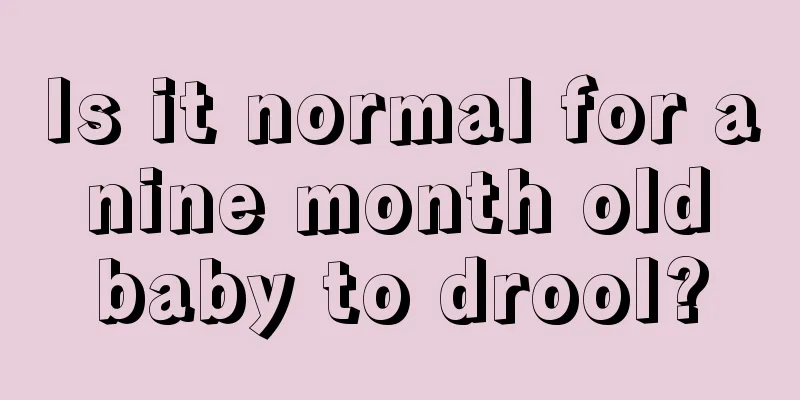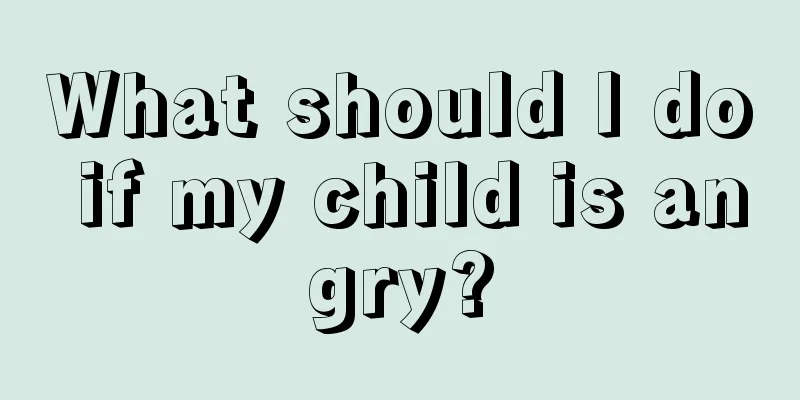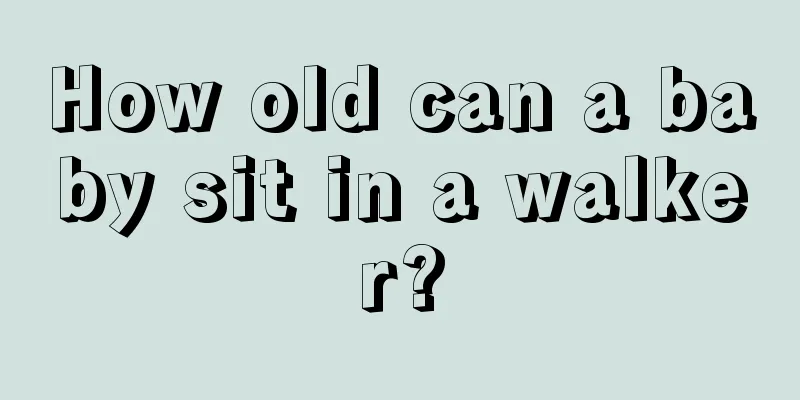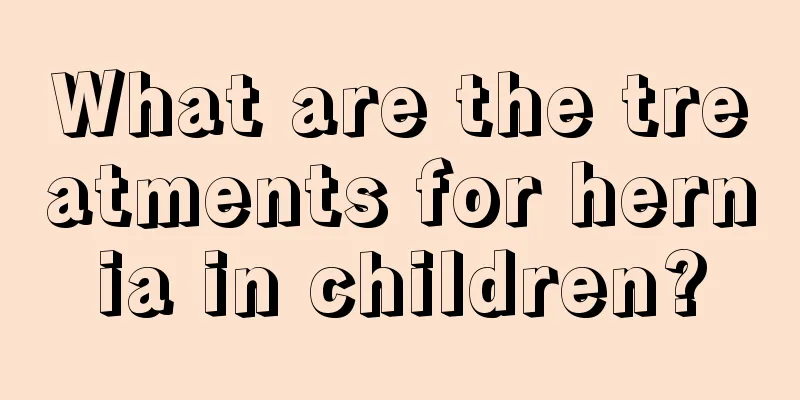What is the order in which baby teeth grow?
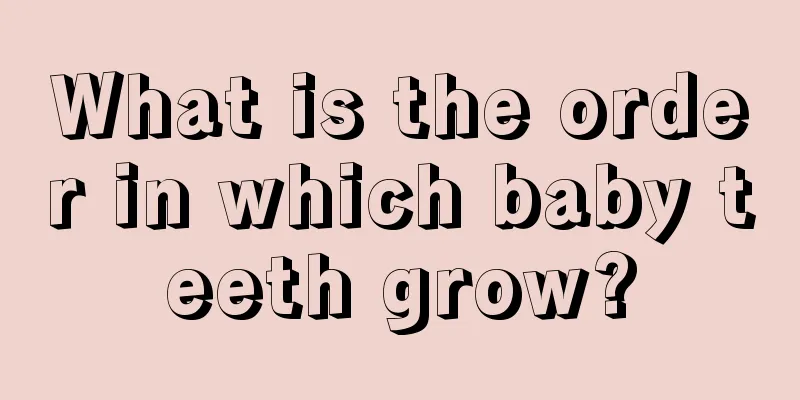
|
The order of baby's teeth growth is from 6-7 months old. Generally, two small teeth will grow first on the upper or lower part. As the baby grows, the molars and back teeth will grow at different times. The time of baby's teeth growth is determined by physical constitution and dietary nutrition. You can give the baby some calcium supplements appropriately, eat more nutritious foods, and supplement the body with more vitamin C or minerals. order Generally, babies start to grow teeth when they are 6 months old. Sometimes when the baby smiles, two small teeth will be exposed on the top or bottom. They are pointy and very cute. So, what is the normal order for a baby's teeth to grow? The correct order for baby teeth to grow 6-8 months: Two middle incisors grow out of the lower alveolar teeth, followed by two more incisors grow out of the upper alveolar teeth. 8-12 months: The two outer incisors of the upper alveolar teeth grow out, and then the two outer incisors of the lower alveolar teeth emerge from the gums. 12-16 months: The first deciduous molars appear in the upper and lower alveoli. 16-20 months: Canine teeth grow in the upper and lower alveoli. 20-30 months: The two second deciduous molars in the lower alveolar teeth and the two second deciduous molars in the upper alveolar teeth grow out, and all 20 deciduous teeth are grown. Babies start to grow teeth at 6 months old, and by the age of 2 and a half, all 20 deciduous teeth have basically come out. The above is the normal order in which babies grow teeth. The order in which a baby's teeth erupt is related to both genetics and nutrition. Usually, babies' teeth erupt in order, but there are also many cases where the order of teeth eruption is reversed. As long as the quality of the teeth is good, it doesn't matter if the order of teeth eruption is disordered. symptom Generally speaking, babies start to grow their first tooth when they are about seven months old, but the tip of the tooth may be slightly visible when they are three months old; some babies may not grow teeth until they are twelve months old. The speed of tooth growth is influenced by genetics, so if the couple had early teething when they were young, the baby is likely to do the same. The signs of teething will appear about two to three months before you actually see the teeth coming out. These signs vary from person to person, but they are generally the following: Drooling: Babies start drooling around ten weeks to three or four months old, and teething particularly stimulates saliva secretion. Rash on the chin or face. Your baby's chin and facial skin may develop allergic rashes due to long-term contact with saliva. To avoid this phenomenon, you should wipe the baby's saliva frequently. When your skin is dry, apply a gentle lotion to moisturize it. Minor cough: Too much saliva can cause your baby to regurgitate or cough. As long as it's not a cold or allergies, it doesn't matter. Chew. A teething baby may bite anything and everyone he sees—from his own hand to his mother's nipple to a stranger's finger—in an attempt to relieve the pressure of the growing tooth under his gums by applying the force of chewing. pain:
Inflammation is the only way the delicate gum fibers cope with the approaching tooth, and for some babies it can be extremely painful, while for others it feels nothing at all. It is especially uncomfortable when the first teeth and molars grow (but molars only grow after about one year old). irritability: As the tip of the tooth gets closer to the top of the gum, the inflammation becomes more severe and the constant pain makes the baby irritable. Refusing to eat. Teething babies often become fussy when feeding. He may appear eager to suck milk because he really wants to put something in his mouth, but once he starts sucking milk, his gums will hurt due to the sucking action, so he will appear to have no interest in sucking milk. Babies who have already started eating solid foods may also refuse solid foods and need to rely on breast milk or formula to supplement their nutrition. If your baby refuses to eat seriously, you should take him to see a doctor. diarrhea: Some doctors agree that diarrhea and teething are related - perhaps swallowing too much saliva causes loose stools; others deny this. Regardless of whether there is a connection or not, parents should not ignore their baby's diarrhea. |
<<: What should I do if my baby’s penis is red and swollen?
>>: What are the effective solutions for baby's airsickness?
Recommend
What to do if your baby has tonsillitis and fever
Tonsillitis and fever in babies have a great nega...
What are the methods for cutting baby eyelashes?
When a baby is just born, its eyelashes are not v...
How to prevent conjunctivitis in children?
Many children may get conjunctivitis without payi...
What does it mean when a child keeps blinking?
What does it mean if a child keeps blinking? Is i...
Can children drink pure milk?
Can children drink pure milk? The answer is yes, ...
What is hydrocephalus in children
Children's physical health is an issue that p...
What causes a red spot in the baby's eye?
Many parents always find themselves at a loss abo...
How to take care of a child who suddenly has stomach pain
As children grow up day by day, some bad habits w...
How to correct children's picky eating?
Children with picky eating habits can eat a lot o...
Why does the baby suddenly cry when he falls asleep?
Some babies cry a lot at night. The constant cryi...
Can middle school students wear facial masks?
Nowadays, women pay great attention to their skin...
Symptoms of intrauterine pneumonia in infants
When taking care of their babies, new mothers mus...
Can birthmarks be cured?
Many people are born with birthmarks on their bod...
How to tie hair for little girls
Little girls love beauty very much, so they all w...
Two month old baby crying while drinking milk
Since infants and young children cannot express t...

